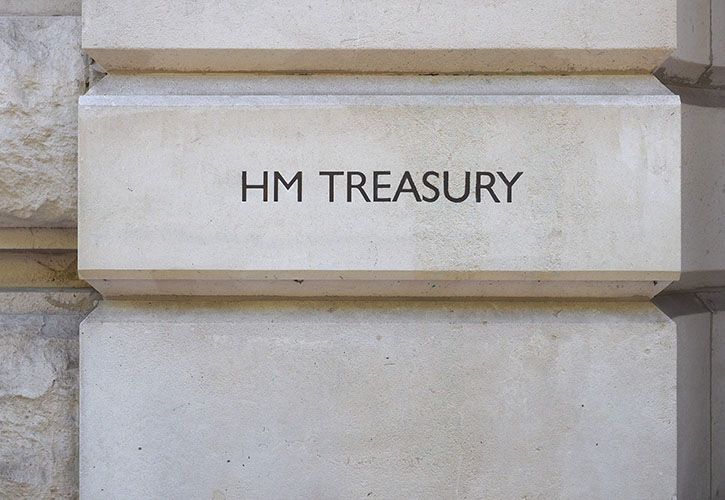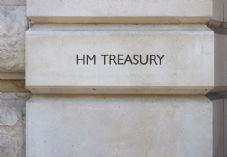UK DIY News
Industry Commentary On The Budget

We've compiled a collection of statements on yesterday's much-anticipated Budget from industry professionals and groups in the retail and home improvement sector.
Click here to read the response from:
RETAIL
British Retail Consortium
Helen Dickinson, Chief Executive at the British Retail Consortium, said:
“It was a mixed bag Budget that offered relief for many shops, but brought in new costs for others. Retailers face a delicate balancing act as they strive to invest, hire, and keep prices affordable. The announced permanent reduction in retail business rates is an important step to reduce the industry’s burden from this broken tax. Yet the decision to include larger retail premises in the new surtax does little to support retail investment and job creation. The welcome plan to scrap the damaging de minimis loophole was weakened by a 2029 deadline. And while increases in the National Living Wage were in line with expectations, the rise to the minimum wage for under-21s could limit employment opportunities. All in all, we will see winners and losers across retail and the impact for consumers will unfold in the coming months, but this Budget does not go far enough to mitigate the inflationary pressures already bearing down on the industry.”
Business Rates:
“This Budget offered much-needed relief for some retailers, but fell short of the bold action needed to secure the long-term future of our high streets and mitigate the inflationary pressures which are currently pushing up prices for households. While the announced changes to business rates are a step in the right direction, many felt the Chancellor should have gone further. The 5p rates reduction for retail, hospitality and leisure properties with a rateable value below £500,000 is unlikely to fully fix the situation where retail, as 5% of the economy, pays over 20% of all business rates. Including supermarkets and anchor stores in the new surtax is a retrograde step that does little to mitigate the rising cost of food and essentials. Larger stores, which already pay one third of the industry’s business rates bill and employ around a million people, should have been exempted from a surtax intended to fund support for the high street.”
On Employer NI and National Living Wage:
“Retail employment costs have risen significantly over the last year, with last year’s Budget changes to employer National Insurance and the National Minimum Wage adding £5 billion to retail costs. With food inflation nearing 5% and 100,000 jobs lost in retail over the last year, further cost rises are challenging for retailers to absorb, given tight retail margins. But the NLW uplift announced by the Chancellor was in line with the core expectations announced by the Low Pay Commission, providing stability for retailers’ financial planning.
“The higher increases for under 21s, when coupled with concerns of retailers about the implications of some provisions in the Employment Rights Bill, will do little to encourage the employment prospects of younger people.”
On Low Value Imports:
“While we welcome the decision by the Chancellor to close the de minimis loophole, the proposed timeframe is simply too long. There are 1.6m parcels arriving in the UK every day, double what they were last year, and businesses cannot afford any delay on scrapping the existing rules. The US has already removed its threshold, with the EU following suit next year; the Chancellor must take decisive action and remove the exemption as fast as possible. This will help protect British consumers from the risks of imported goods that don’t meet the UK’s stringent environmental and ethical standards, while promoting fairer competition.”
PwC UK
Jacqueline Windsor, Head of Retail at PwC UK comments on the impact of the Chancellor’s Budget on retail and consumer businesses:
“Today’s Budget brought some respite for the 85% of consumers who have told us that they are concerned about the cost of living, with one-year freezes on fuel duty and rail fares and a short-term cut to energy bills being the biggest impacts. While these will be offset by longer-term indirect tax rises such as the freeze on income tax thresholds, in the short-term retail and hospitality businesses will hoping these measures bring spending momentum to what has been a slow start to the critical Golden Quarter in the run-up to Christmas.
“Longer term, the Budget does not allay many consumer-facing businesses’ concerns about the cost of doing business. While there has been no repeat of the employee NICs rises from last year, the 4.1% increase in National Living Wage and even higher 8.5% increase in minimum wage for 18-20 year olds particularly affect the workforces of the retail and hospitality sectors. While there will be reductions in business rates for smaller properties, the permanently higher multiplier for properties over £500,000 will affect larger stores, notably supermarkets and high street anchor stores, as well as warehouses. This will inevitably put pressure on, for example, grocery prices that are already bucking the wider trend of lower inflation.
“Other measures to support the high street were more limited, most notably with some loosening of licensing rules and planning reforms designed to help retail and hospitality businesses expand, and a commitment to end customs duty relief on low value imports, which have increased to the UK since the US and EU imposed similar tariffs.
“However, the benefit of these is likely to be offset for many businesses by a host of smaller tax increases, such as the usual RPI uprating on alcohol and tobacco, as well as the extension of the soft drinks levy to lower sugar and milk-based drinks.
“In addition, many of the asks from retail and hospitality industry bodies, such as for no business to pay higher business rates, lower VAT on hospitality sales, and a restoration of tourist VAT refunds, went unheeded by the Chancellor.
“Finally, while targeted at those with the broadest shoulders, measures affecting the better off, such as NICs charges on salary sacrifice and higher tax on savings, dividend and property income, will squeeze the wallets of some of the bigger and more resilient consumer spending groups in the longer term.
“So, while we expect that the Budget will do nothing to dent appetite for Black Friday sales over the coming week - expected to increase to £6.4 billion this year - or anticipated record Christmas spending, the outlook for 2026 and beyond may be more muted.”
Retail Trust
Chris Brook-Carter, chief executive of the Retail Trust, said: “It remains to be seen whether today’s Budget will do enough to reassure the UK retail industry days ahead of the busiest shopping period of the year and amidst the ongoing uncertainty currently facing the sector from all sides.
“Retail businesses are still reeling from the huge economic pressures placed on them in the last Budget and have been dealing with a fall in sales in October due to dampened consumer confidence as shoppers awaited today’s Budget. Our latest research has found 54% of retail workers are at risk of leaving their jobs and 44% are working while unwell due to the insecurity they and their employers face. Meanwhile 77% have told us they have experienced physical or verbal abuse this year, with 43% now coming under attack every week.
“Retail is the largest employer outside of the public sector, is a gateway to work for many people, and binds our communities and high streets together. This is something we forget at our peril, and our concern is that job insecurity among employees could rise and that shoppers’ tensions will remain heightened over the coming months. The industry needs more support from the Government but it’s also on all of us to support staff and help bring respect back to the high street this Christmas when we’re out shopping, starting with acts as simple but as important as a greeting, a thank you and a smile.”
Faire
Charlotte Broadbent, UK general manager at Faire:
"Many independent shops rely on a strong Christmas shopping period to help them survive the forthcoming year but ongoing uncertainty in the run up to today’s Budget has meant that shoppers have been naturally holding back on spending ahead of what is supposed to be the busiest time of year for small retail businesses.
"Independent shopkeepers are extremely creative and resilient, and I know they have been working even harder over the last few months to source unique and innovative products that put smiles on their customers’ faces and encourage them into stores. We also remain committed to supporting our community of over 50,000 independent retailers in the UK to boost their offerings and by offering tools and solutions that help with financing, managing costs and growing sales.
"The Chancellor announced today that she intends to boost productivity, cut the cost of living and bring down inflation, and we only hope that this can go some way to reassuring shoppers and retail businesses in this important, final month before Christmas. We of course welcome the changes to business rates that should make it fairer for those running independent shops on our high streets, and Rachel Reeves has also pledged to make the UK a more attractive place to grow small businesses which is something we, as a champion of all the small businesses working with us at Faire, would be extremely supportive of.”
Virtualstock powered by Logicbroker
Ed Bradley, Chief Growth Officer, Virtualstock powered by Logicbroker :
“Retail continues to operate in one of the toughest cost environments in decades. If the Government wants to stabilise a sector that underpins the UK economy, it must restore consumer confidence and improve competitiveness – not simply shift tax burdens around.
“Closing the import-tax loophole is a long-overdue step towards fairness, but it will only work if enforcement is digital. Without modern, data-led customs infrastructure, UK retailers will continue to compete on an uneven playing field.
“Ultimately, its tech – not tax – that will deliver the growth retail needs. Real-time stock visibility, faster supplier onboarding, and automated fulfilment are essential for reducing costs and unlocking productivity.
“As agentic AI reshapes the way consumers search and shop – much like e-commerce did 20 years ago – the UK cannot afford to fall further behind the US. The Government must back retailers with the digital investment and infrastructure needed to keep the UK competitive in the next era of retail.”
Aira UK
Matt Isherwood, Managing Director, Aira UK CEO:
"For households under cost-of-living pressure, a £150 annual reduction in energy bills is undeniably welcome. But it is also a reminder that energy prices remain roughly 50% higher than before the pandemic and the energy crisis.
“We welcome the £1.5bn additional capital expenditure to tackle fuel poverty in the warm homes plan. We hope some of this funding is invested into new, well-designed policies to fill the ECO gap. While the scheme in its existing format had major issues, we need to make sure low-income households are supported through the transition and not left behind.
“The Chancellor’s commitment to channel Budget savings into reducing electricity bills is the right move and will help the poorest households who rely on direct electric heating. However, freezing the main rate for liquefied petroleum gas risks creating a de facto fossil-fuel subsidy worth billions. This choice directly undermines the UK’s ambition to make clean electricity the default, affordable power source for every household.
“Budget decisions must pull the UK toward a cleaner, cheaper, more secure heating future, not keep us tethered to fuels of the past. We urge the government to urgently publish the Warm Homes Plan to prevent further delays."
HSS Proservice
Tom Shorten, CEO HSS ProService Marketplace says:
“Construction and building services sit underneath almost every part of the economy, from housing and infrastructure to retrofit and day to day maintenance, so any squeeze on the cost of living or on business investment quickly finds its way onto sites and into supply chains. The Budget’s focus on stabilising the public finances and targeting support at people who are still struggling with bills is understandable, but every frozen threshold and new levy risks taking spending power out of the system at the very moment we need demand and confidence to rise, not fall. The government talks a lot about the importance of homebuilding and infrastructure but we need to see promises become reality.
"Where the Chancellor backs growth, for example through planning reform, capital investment in housing and infrastructure, and a more modern business rates system for firms with a physical footprint, that is good news for our sector and for the customers who rely on it. The test now will be whether today’s decisions translate into a visible pipeline of work and a climate where contractors feel confident to bid on new work and grow their workforce and suppliers happy to invest in fleet. As a digital marketplace that helps trades and facilities teams get the right equipment at the right price, we can do our part on productivity and value, but we need a Budget that gives households and businesses room to breathe.”
Source : Aira UK; British Retail Consortium; Faire; HSS Proservice; PwC; Retail Trust; Virtualstock powered by Logicbroker
Image : claudiodivizia / iStock / 1178304624
Thank you for the excellent presentation that you gave at Woodbury Park on Thursday morning. It was very interesting and thought-provoking for our Retail members. The feedback has been excellent.











































